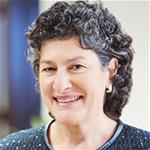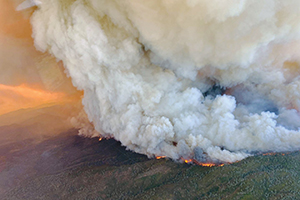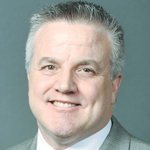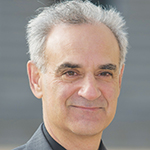As scientists point to wildfires and severe drought across much of the American West, flooding in the Midwest, hurricanes in the South and other extreme weather as evidence of global warming's impact, CHA, its members and other Catholic organizations are ramping up their efforts to reduce carbon emissions.

Sr. Mary Haddad, RSM, CHA's president and chief executive officer, said health care has a strong role to play in helping to halt climate change and in leading the way toward sustainability.
She noted that the sector in recent years has begun working to stop being a contributor to the heating of the atmosphere by curbing its use of fossil fuels and emissions of carbon.

Providence St. Joseph Health, one of the largest Catholic health systems, has pledged to become carbon neutral over the next few years. Ascension recently developed a long-term environmental impact and sustainability program to augment its aggressive ongoing efforts. It focuses on net-zero carbon emissions at facilities, responsible supply chain management and fostering healthy communities.
"We in health care have a responsibility to ensure that we do everything we can to help reverse the impact that we've already created and to take a leadership role in doing that," Sr. Mary said.
Mission alignment
She noted that countering climate change closely aligns with the Catholic mission of CHA and its member organizations. One of the core Catholic principles that guide CHA is providing a voice for those on the margins — this includes people who might otherwise have no say on climate change and who are also among the most likely to be adversely affected by the impacts of a damaged planet, Sr. Mary said.
"We work in common with other health associations, but our key focus, and what our members want us to keep focused on, are those things that are critical to Catholic social teaching," she said. "Those areas around caring for people who are poor and marginalized motivate us most around advocacy issues."
CHA has been working with Catholic health systems for several years to share best practices on sustainability and ways to act in partnership within communities to devise solutions to climate-related issues. Many of those efforts such as toxic materials management and sustainable purchasing are covered in the environment focus area of CHA's website.

Sr. Mary and Loren Chandler, CHA's chief operations and finance officer, are working with health system leaders to expand and coordinate efforts around the environment.
"It really gets back to what CHA is about, which is that we're better together," Chandler said. "So, we're looking at how do we get all the work that's already going on with our members at the significant level and bring them together to have more of a higher-level strategic thinking of what can we do to effectuate change."
Code red
On Aug. 30, the U.S. Department of Health and Human Services announced the establishment of an Office of Climate Change and Health Equity. The mission of the office is to protect vulnerable communities.
On Sept. 23, CHA will host the 2021 Feast of St Francis webinar. The topic is "Cry of the Earth, Cry of the Poor: Reducing our Carbon Footprint" and the focus will be on how health care organizations can act to adopt renewable energy and become carbon neutral. The online event is open to the public and free to anyone.

Gary Cohen, founder and president of the nonprofit Health Care Without Harm, will be one of the featured speakers on the webinar.
Cohen noted that reports on global warming released in August from the United Nations' Intergovernmental Panel on Climate Change and from UNICEF are grim. The first report says human influence has warmed the climate at a rate that is unprecedented in at least the last 2,000 years and is unequivocally linked to impacts such as flooding and droughts. The UNICEF report says that a billion children across the globe are at significant risk from climate-related disasters.
"For anybody who's paying attention it's code red for immediate action," Cohen said.
Despite the dire situation, he said there is still time for transformation. "That's what's incredible: our generation is in a unique position to fundamentally reduce the burden on our children and grandchildren if we act expeditiously, if we act with boldness and passion and spirituality," Cohen said.
He said the health care sector is ideal to lead on climate change for several reasons. The first is that it's taking care of people in the midst of extreme weather events and so it "needs to sort of anchor the resilience of the communities that it serves." Another is that polls routinely show that the health care sector is a trusted voice.
"We think that having health professionals become educated, become advocates for policies that are going to accelerate our transformation away from fossil fuels and toxic chemicals, is very powerful and will help tip the political calculus," Cohen said.
Action in advance of summit
On the political front, CHA is partnering with the Catholic Climate Covenant in an effort to lobby Congress and the Biden administration to enact national solutions that address the sources and threats of climate change.
The Catholic Climate Covenant is rallying support for a Climate Action Letter that will be sent to political leaders urging action in advance of a United Nations climate summit set to begin in Glasgow, Scotland, on Nov. 1.
"We would love to have a very strong showing from the U.S. Catholic community that we care about climate action," said Jose Aguto, associate director of the Catholic Climate Covenant.
CHA was among the founders of the covenant, which works to bring Catholic social teachings to bear on ecological issues, and was an early signer of the Climate Action Letter.
The two organizations also are working collaboratively toward the launch of a much broader initiative, the Laudato Sí Action Platform.
The platform is expected to officially launch Oct. 4. Its goal is to put in place a "ground-up approach" for communities to take decisive action in line with Laudato Sí, Pope Francis' 2015 encyclical calling on all people of good will to care for their common home.
Seven goals over seven years
The Catholic Climate Covenant has created a website, godsplanet.us, that explains the platform and its focus on seven sectors — one of which is health care — to enact seven goals over seven years. Among the goals are to respond to the cry of the poor and promote the adoption of simple lifestyles.
The platform was crafted by the Vatican's Dicastery for Promoting Integral Human Development. Sr. Mary became a member of the dicastery in the spring. She said the platform elevates health care to be part of the Vatican's efforts to bring about global change.
"I feel like it's going to be a wonderful opportunity for me to represent Catholic health care and for us to get firsthand some of the ways that we can link in and connect with the work of the global church," she said of her appointment to the dicastery.
